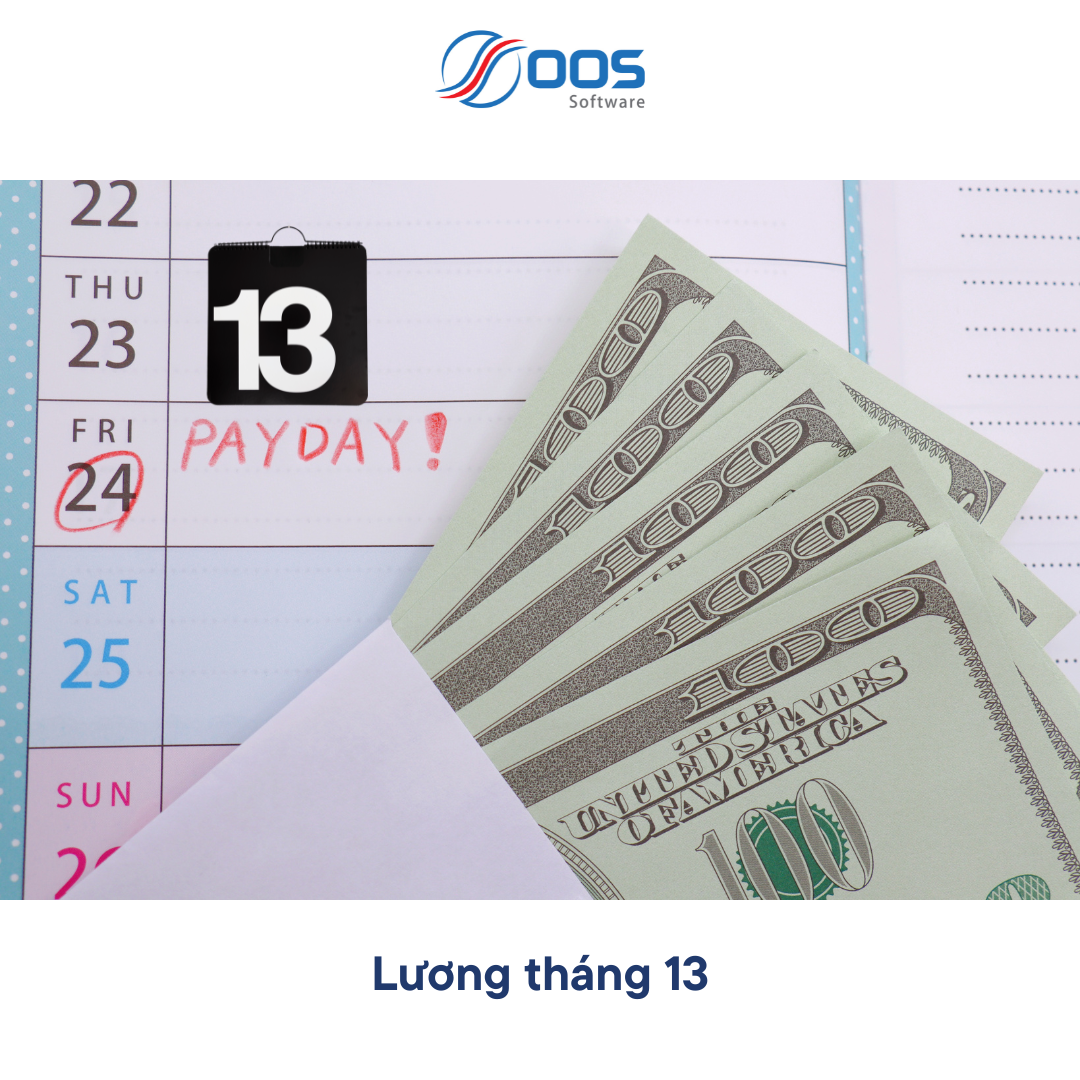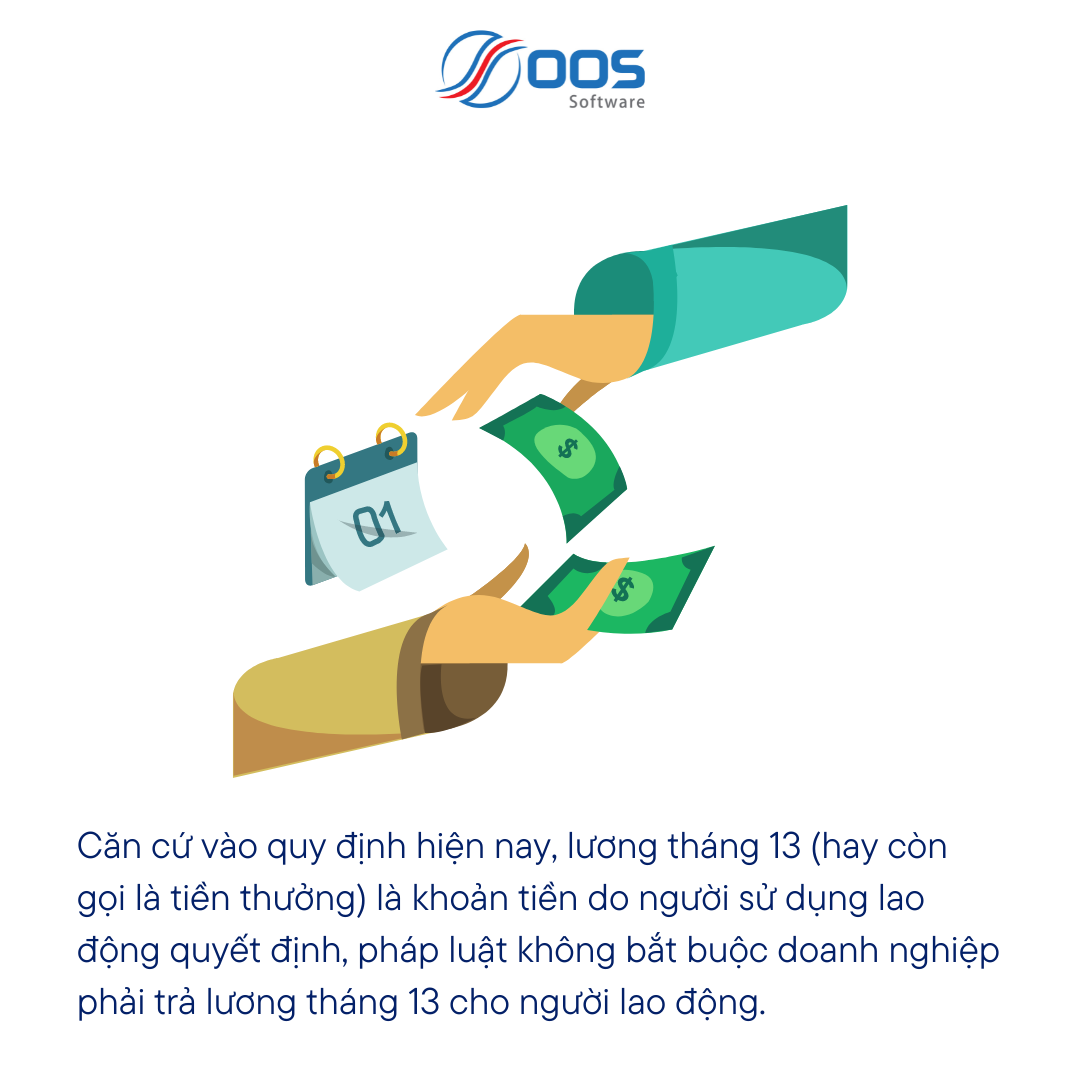13th month salary is a phrase that is no longer unfamiliar to many people. However, what exactly is the 13th month salary? Are businesses required to pay this salary to employees? Right now, these questions will be answered in detail in the article below!
What is 13th month salary?
The 13th month salary is also known as the company's annual bonus for employees and businesses with the purpose of encouraging the working spirit of employees during the past year. This is the remuneration regime that businesses and companies offer to attract candidates to apply to the organization.
In Article 103 of the Labor Law 2012, there are regulations on bonuses as follows:
"Bonus is an amount that a business rewards employees based on two criteria: The employee's work results and the production and business results that year."
Therefore, the 13th month salary will be based mainly on the business results of the business during the year, the level of work completion and according to the company's reward and penalty regulations. Depending on each unit and business, the 13th month salary is used as a remuneration regime to attract and retain talent.

How to calculate 13th month salary
Until now, there are no official regulations on how to do it Payroll 13 months. However, many companies and businesses are using popular calculation methods based on the seniority and working term of the employee.
With the above calculation method, to receive the 13th month salary, most businesses will offer a number of conditions to employees such as:
- Employees are official employees who sign labor contracts with businesses and companies. Contract duration will depend on each organization.
- Employees have an official working term at the enterprise of 1 month or more at the organization.
- The employee continues to work at the enterprise or company until the 13th month salary calculation
When meeting the given conditions, the employee will receive a 13th month salary.
The way to calculate the 13th month salary will depend on the regulations of each business and the agreement between the employee and the business. Normally, the 13th month salary will be calculated in one of the following two ways:
- Work for 12 months: 13th month salary = 1 month salary
- Working less than 12 months: The 13th month salary is calculated at an equivalent rate. In this case, the following 2 small cases will be considered:
+ Same salary but less than 12 months: 13th month salary = (1 month salary/ 12 months) * Number of months worked
+ Work for 12 months but there is a change in salary: 13th month salary = (1 month salary without change/12) * Number of months working with unchanged salary + (1 month salary after change/12) * Number of months working with the following salary change
Read more: 5 steps to build a 3P salary system
Some questions related to 13th month salary
The 13th month salary is always a topic of great interest to everyone every Tet holiday, so many questions are also raised.
Is 13th month salary mandatory?
According to Article 104 of the 2019 Labor Code, there are regulations on bonuses for employees as follows: "Bonus is the amount of money or property or in any other form that the employer rewards the employee based on the results. production and business results, and the level of job completion of workers".
Regulations on salaries and bonuses will be decided by the employer and publicly announced at the workplace after consulting with the employee representative organization at the grassroots level for the place where there is an employee representative organization. labor at the facility.
Based on current regulations, the 13th month salary (also known as bonus) is an amount decided by the employer; the law does not require businesses to pay the 13th month salary to employees.

Does the 13th month salary include personal income tax?
According to Point a, Clause 2, Article 3 of the Law on Personal Income Tax (Amended and supplemented in 2012 and 2014), there are regulations on subject income including:
(2) Income from salaries and wages includes:
- Salaries, wages and amounts of money in the nature of salaries and wages
- Additional payments and allowances, except for prescribed allowances and allowances
- Remuneration in various forms
- Bonuses (except bonuses with titles approved by the Stategifts, national awards, international awards, inventions, bonuses for detecting and reporting violations of law to competent authorities)
Therefore, the 13th month salary is income of the nature of salary and wages. This means that employees receiving a 13th month salary will A portion must be deducted to pay personal income tax according to regulations.
Does the 13th month salary include social insurance?
According to Article 89 of the 2014 Law on Social Insurance, the employee's monthly salary for social insurance includes salary, salary allowances and other additional amounts as prescribed.
Clause 3, Article 30 of Circular 59/2015/TT-BLDTBXH clearly states that the monthly payment for compulsory social insurance does not include other benefits such as:
- Bonuses, initiative bonuses;
- Mid-shift meal; Subsidies for gasoline, telephone, transportation, housing, child care, and child care;
- Support when employees have relatives who die, employees whose relatives get married, employees' birthdays, and subsidies for employees facing difficult circumstances when suffering from labor accidents or occupational diseases;
- Other supports and allowances are recorded in a separate section in the labor contract.
In addition, according to the instructions in Official Dispatch 560/LDTBXH-BHXH replying to Mizuho Bank on determining the salary as the basis for social insurance payment, employee bonuses include the 13th month salary bonus and assessment bonus. The annual work result value is not the basis for calculating social insurance contributions.
From the above, we can conclude that The employee's 13th month salary will not have to pay social insurance.
Don't miss: What is salary level? Regulations to increase salary levels, workers need to clearly understand
When is the 13th month salary paid?
The 13th month salary is a bonus that businesses pay to employees at the end of the year, usually on New Year's Eve or Lunar New Year. The 13th month salary payment time will depend on the regulations of each enterprise and the agreement between the employee and the enterprise.
Normally, the 13th month salary will be paid in December at the end of the calendar year. Some businesses may pay the 13th month salary in January at the beginning of the new year or divided into several installments during the year.
However, currently, many businesses choose to pay the 13th month salary before the Lunar New Year holiday so that employees have money to spend during the holiday.
Can I get 13th month salary if I quit my job before Tet?
Paying the 13th salary according to the law is not mandatory. However, there will be cases where businesses will pay the 13th salary after the end of December.
In some companies, businesses will apply a different method of paying the 13th month bonus, which is to pay the same as the Lunar New Year bonus. Or there will be some businesses and companies that will combine this bonus together.
Therefore, employees need to consider in the labor contract signed with the employer the regulations on payment of 13th month salary bonus. In cases where they have not worked for the full 12 months, they will still receive the 13th month salary if within The contract has a 13th month salary clause.
Surely through the information provided above, employees have a better understanding of "13th month salary". When signing a labor contract, employees should pay attention to the terms of the contract to negotiate the most beneficial bonus for themselves.
OOS Software has more than 10 years of accompanying many businesses and corporations. Contact now to Get Human Resources Software consulting for your Business.























